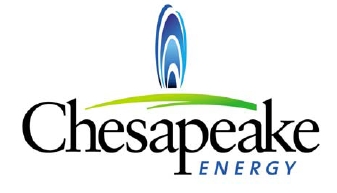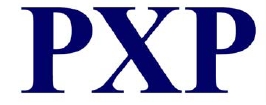| N e w s R e l e a s e | |
 FOR IMMEDIATE RELEASE JULY 1, 2008 |  |
Chesapeake Energy Corporation P. O. Box 18496 Oklahoma City, OK 73154 | Plains Exploration & Production Company 700 Milam Street, Ste. 3100 Houston, TX 77002 |
CHESAPEAKE CONTACTS: JEFFREY L. MOBLEY, CFA (405) 767-4763 jeff.mobley@chk.com MARC ROWLAND (405) 879-9232 marc.rowland@chk.com | PXP CONTACTS: HANCE MYERS (713) 579-6291 hmyers@pxp.com SCOTT WINTERS (713) 579-6190 swinters@pxp.com |
CHESAPEAKE AND PXP ANNOUNCE HAYNESVILLE SHALE JOINT VENTURE
OKLAHOMA CITY, OK AND HOUSTON, TX, JULY 1, 2008 – Chesapeake Energy Corporation (NYSE:CHK) and Plains Exploration & Production Company (NYSE:PXP) (“PXP”) today announced they have entered into a Haynesville Shale joint venture (the “JV”) in North Louisiana and East Texas.
PXP has agreed to acquire a 20% interest in Chesapeake’s Haynesville Shale leasehold as of June 30, 2008 for $1.65 billion in cash. In addition, PXP has agreed to fund 50% of Chesapeake’s 80% share of drilling and completion costs for future Haynesville Shale JV wells over a several year period until an additional $1.65 billion has been paid. Chesapeake estimates that its Haynesville leasehold as of June 30, 2008 was approximately 550,000 net acres. As a result of the transaction, PXP will hold approximately 110,000 net acres of this leasehold and Chesapeake will hold approximately 440,000 net acres. Chesapeake plans to continue acquiring leasehold in the Haynesville Shale play and PXP will have the right to a 20% participation in any such additional leasehold.
The companies currently plan to develop the Haynesville Shale using 80 acre spacing, which could support the drilling of up to 6,875 horizontal wells on the leasehold. Assuming that per well estimated ultimate reserves (EUR) average between 4.5 and 8.5 billion cubic feet of natural gas equivalent (bcfe), the companies’ present Haynesville Shale leasehold could hold net unrisked unproved reserve potential of 23-44 trillion cubic feet of natural gas equivalent (after deducting an assumed average royalty burden of 25%). Chesapeake is currently utilizing five operated rigs in the Haynesville Shale play and anticipates operating at least 12 rigs by year-end 2008, at least 30 rigs by year-end 2009 and up to 60 rigs by year-end 2010. Under this planned rig allocation, the companies anticipate drilling at least 600 wells over the next three years.
Aubrey K. McClendon, Chesapeake’s Chief Executive Officer, commented, “We are pleased to announce this joint venture with PXP and believe it creates substantial value for both companies. This transaction establishes a $16.5 billion valuation for our Haynesville Shale leasehold, all of which is located in the Core Area of this very significant discovery. We believe it also provides an important validation of Chesapeake’s strategy of being a first mover in discovering and developing new unconventional resource plays. The $1.65 billion in cash we are receiving from PXP and the additional $1.65 billion commitment will help fund a substantial portion of Chesapeake’s Haynesville Shale leasehold, drilling and completion costs over the next few years, providing us with exceptional finding costs from this play of less than $1.00 per thousand cubic feet of natural gas equivalent (mcfe).
“We have achieved outstanding drilling results in the play to date and believe Chesapeake’s expertise in developing shale plays provides us with an opportunity to see even better results in the months and years ahead. The initial production rates on the eight horizontal wells we have completed have ranged from 5 to 15 million cubic feet of natural gas equivalent (mmcfe) per day on restricted chokes at flowing casing pressures of up to 6,500 PSI. We believe these truly exceptional wells would have been capable of even greater initial production rates if produced on open chokes as Barnett and Fayetteville Shale wells commonly are produced. These production rates and flowing casing pressures, along with our geoscientific and petrophysical analysis of over 70 wells that have penetrated the Haynesville Shale to date, give us confidence that our mid-point EUR estimate of 6.5 bcfe for the Core Area of the Haynesville Shale is currently appropriate. This compares quite favorably to our Barnett Shale Core Area EUR average range of 2.5-3.0 bcfe and our Fayetteville Shale Core Area average range of 2.2-2.8 bcfe. To date, our costs to drill and complete horizontal Haynesville Shale wells have averaged approximately $6.5 million and we anticipate that we will be able to reduce these costs by at least 10% once full-scale development of the play is underway based on other shale play experience.
“There has been substantial industry interest in our leasehold in the past few months and we chose PXP as our partner because of our long relationship with its management team, its successful record as an effective industry partner in major projects and strong historic presence in the Louisiana energy industry. We look forward to working with PXP on this significant opportunity and generating meaningful new supplies of clean-burning natural gas for American consumers while also benefiting our respective shareholders.”
James C. Flores, PXP’s Chairman, President and Chief Executive Officer, commented, “Due to PXP’s strong financial position from its high cash flow, conservatively managed balance sheet and recently expanded borrowing capacity under its revolving credit facility, we are in a position to invest in this unique Haynesville Shale play opportunity and to partner with Chesapeake, the premier resource play operator in the U.S. and the dominant driver in the Haynesville Shale play. Chesapeake has amassed the leading leasehold position in the Core Area of the play that could support the drilling of up to 6,875 future drilling locations. In addition, Chesapeake has built a talented, large and experienced geoscientific, land, drilling and engineering Haynesville Shale team.
“We believe that Chesapeake’s unrivaled experience in drilling and completing shale wells throughout the U.S., its large rig fleet and aggressive Haynesville Shale development program will provide PXP with attractive operational costs of approximately $1.83 per mcfe and, using $8 NYMEX natural gas prices and the median reserve estimate, generates an attractive return on investment while accelerating production and reserve growth significantly beyond our earlier projections. With the addition of the Haynesville Shale position, PXP expects to have organic production growth of greater than 20% compounded annually and reserve growth of greater than 10% compounded annually. We now anticipate our current net proved reserves of 600 million barrels of oil equivalent (boe) will reach approximately 1 billion boe by 2012.”
Jefferies Randall & Dewey acted as advisor to Chesapeake and J.P. Morgan Securities Inc. and Lehman Brothers Inc. acted as advisors to PXP on the transaction.
Conference Call Information
A jointly hosted conference call by Chesapeake and PXP management teams to discuss this release has been scheduled for tomorrow, July 2, 2008, at 9:00 a.m. EDT. The telephone number to access the conference call is 913-312-0959 or toll-free 888-254-2827. The passcode for the call is 2424219. We encourage those who would like to participate in the call to dial the access number between 8:50 and 9:00 a.m. EDT. The conference call will also be webcast live on the Internet and can be accessed by going to Chesapeake’s website at www.chk.com and selecting the “News & Events” section or PXP’s website at www.pxp.com and selecting “Presentations / Webcasts” in the Investor Relations section.
Chesapeake Energy Corporation is the third-largest producer of natural gas in the U.S. Headquartered in Oklahoma City, the company's operations are focused on exploratory and developmental drilling and corporate and property acquisitions in the Fort Worth Barnett Shale, Fayetteville Shale, Haynesville Shale, Mid-Continent, Appalachian Basin, Permian Basin, Delaware Basin, South Texas, Texas Gulf Coast and Ark-La-Tex regions of the United States. Chesapeake’s Internet address is www.chk.com.
PXP is an independent oil and gas company primarily engaged in the upstream activities of acquiring, developing, exploring and producing oil and gas in its core areas of operation: California, Rockies, Gulf Coast, Gulf of Mexico, Texas Panhandle, South Texas and the Permian Basin of the United States. PXP is headquartered in Houston, Texas. PXP’s Internet address is www.pxp.com.
This news release contains forward-looking statements within the meaning of Section 27A of the Securities Act of 1933 and Section 21E of the Securities Exchange Act of 1934. The companies believe that their expectations are based on reasonable assumptions. No assurance, however, can be given that such expectations will prove to have been correct. A number of factors could cause actual results in the Haynesville Shale play to differ materially from the projections, anticipated results or other expectations expressed in this news release, including drilling risks, uncertainties inherent in estimating reserves and future production and the ability to execute on production and development plans. See “Risk Factors” in the respective companies’ 2007 Annual Reports on Form 10-K and other filings with the Securities and Exchange Commission(SEC) for a more complete discussion of risk factors that could cause actual results to differ from those projected. The companies undertake no obligation to publicly update or revise any forward-looking statements.
Production forecasts are dependent upon many assumptions, including estimates of production decline rates from existing wells and the outcome of future drilling activity. Although the companies believe the expectations and forecasts reflected in these and other forward-looking statements are reasonable, they can give no assurance they will prove to have been correct. They can be affected by inaccurate assumptions or by known or unknown risks and uncertainties.
The SEC has generally permitted natural gas and oil companies, in filings made with the SEC, to disclose only proved reserves that a company has demonstrated by actual production or conclusive formation tests to be economically and legally producible under existing economic and operating conditions. The companies use the term "unproved" to describe volumes of reserves potentially recoverable through additional drilling or recovery techniques that the SEC's guidelines prohibit from appearing in filings with the SEC. These estimates are by their nature more speculative than estimates of proved reserves and accordingly are subject to substantially greater risk of actually being realized. While the companies believe their calculations of unproved drillsites and estimates of unproved reserves are reasonable, such calculations and estimates have not been reviewed by third-party engineers or appraisers.